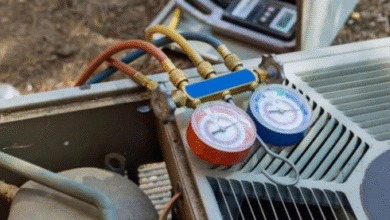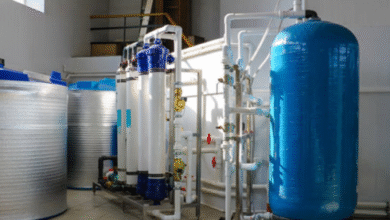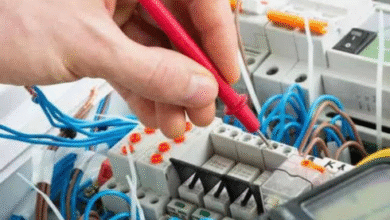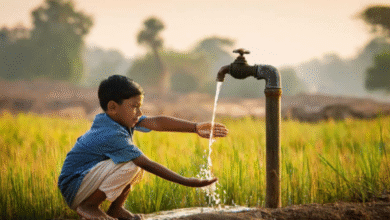Why Clean Water Deserves More Attention Than We Often Give It
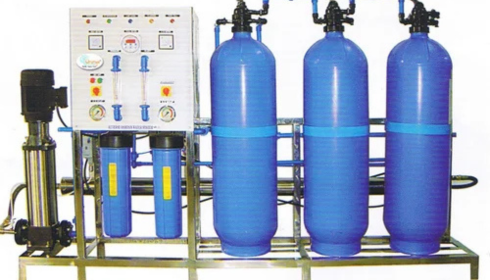
If there’s one thing most of us take for granted every single day, it’s the glass of water we pour from the kitchen tap. We hardly stop to think about it. Is it safe? Is it pure? Unless it smells a little odd or leaves a strange film on our dishes, we rarely give it a second thought. Yet, the quality of the water running through our homes and businesses quietly shapes our health, our appliances, and even the way our morning coffee tastes.
I’ve spent more than a few hours digging into this topic recently, and the deeper I went, the more I realized how overlooked it is. We obsess over organic food labels, eco-friendly packaging, even air quality inside our homes, but somehow, water slips under the radar.
A World That Still Struggles with Water Quality
Even in developed countries, water isn’t always as pristine as we’d hope. Municipal treatment plants do their best, but aging infrastructure, chemical residues, and naturally occurring minerals often sneak into what ends up in our pipes. For some families, this translates into calcium buildup on faucets, cloudy ice cubes, or laundry that feels stiff no matter how much fabric softener they use. For others, it might mean subtle health concerns, like skin irritation or digestive issues.
It’s not meant to be scary, but it does underline a simple point: having better water isn’t a luxury. It’s a basic piece of living well.
The Technology That’s Stepping Up
This is where innovation in water treatment has quietly evolved over the last few decades. Systems today aren’t just about filtering dirt or removing odd smells—they’re about balancing minerals, protecting plumbing, and giving you consistent quality at every tap. Among these advancements, the WaterTech purifier has caught attention for blending performance with reliability. People appreciate that it’s not just another gadget under the sink but something designed to tackle the nuanced problems modern water faces—whether that’s chlorine, sediments, or hardness issues.
It’s fascinating how far we’ve come. Just a generation ago, most households would never imagine needing such systems. Today, they’re becoming almost as common as air purifiers or advanced HVAC setups.
The Simple Value of Everyday Filtering
Let’s bring this down to the everyday level. Imagine you’ve just brewed tea. You take a sip, and instead of tasting smooth and crisp, there’s a faint metallic tang. Or picture scrubbing endlessly at water spots left behind on a glass you just pulled from the dishwasher. These small annoyances are often shrugged off as “normal,” but they’re actually signals of water quality issues.
This is where a dependable Drinking water filter makes all the difference. It doesn’t have to be some complicated, overly engineered system. Sometimes, it’s just about ensuring that what comes out of the tap is crisp, clean, and safe. Families notice it most when their kids start guzzling more water willingly, or when their morning coffee suddenly tastes like it came from a café instead of the corner of their kitchen counter.
Hard Water: The Silent Appliance Killer
Now, let’s talk about hard water—a sneaky culprit that often goes unnoticed until repairs start piling up. Minerals like calcium and magnesium don’t just change the way water tastes; they slowly wreak havoc on appliances. Dishwashers, washing machines, water heaters—none of them are built to stand up against years of scale buildup. Energy bills quietly rise, appliances wear out sooner, and maintenance becomes a constant chore.
This is where a well-designed Water softener system steps in. It takes on the invisible battle happening inside your pipes and appliances, softening water in a way that makes daily life easier. Clothes feel softer, soap lathers better, and machines last longer. It’s one of those investments people only regret not making sooner.
The Bigger Picture
Beyond the practical benefits, there’s a broader story about sustainability. Clean, well-managed water systems reduce bottled water dependence. They save energy by keeping appliances efficient. And they cut down on wasteful repairs or replacements. For businesses, it can mean fewer maintenance costs and happier customers—especially in industries like hospitality, where every glass of water leaves an impression.
There’s also something quietly powerful about knowing you’re in control of your own water quality. You’re not just relying on whatever flows from the city supply. Instead, you’re actively shaping what your family or customers consume. That peace of mind alone is worth considering.
Final Thoughts: A Shift in Mindset
At the end of the day, water quality doesn’t have to be some complicated science project. It’s about paying attention to the small details, investing in the right solutions, and appreciating the role water plays in our everyday lives.
So next time you fill a glass, take a moment to think about what’s actually in it. Is it as clean, safe, and refreshing as it should be? Or is it quietly carrying along things you’d rather leave behind?
